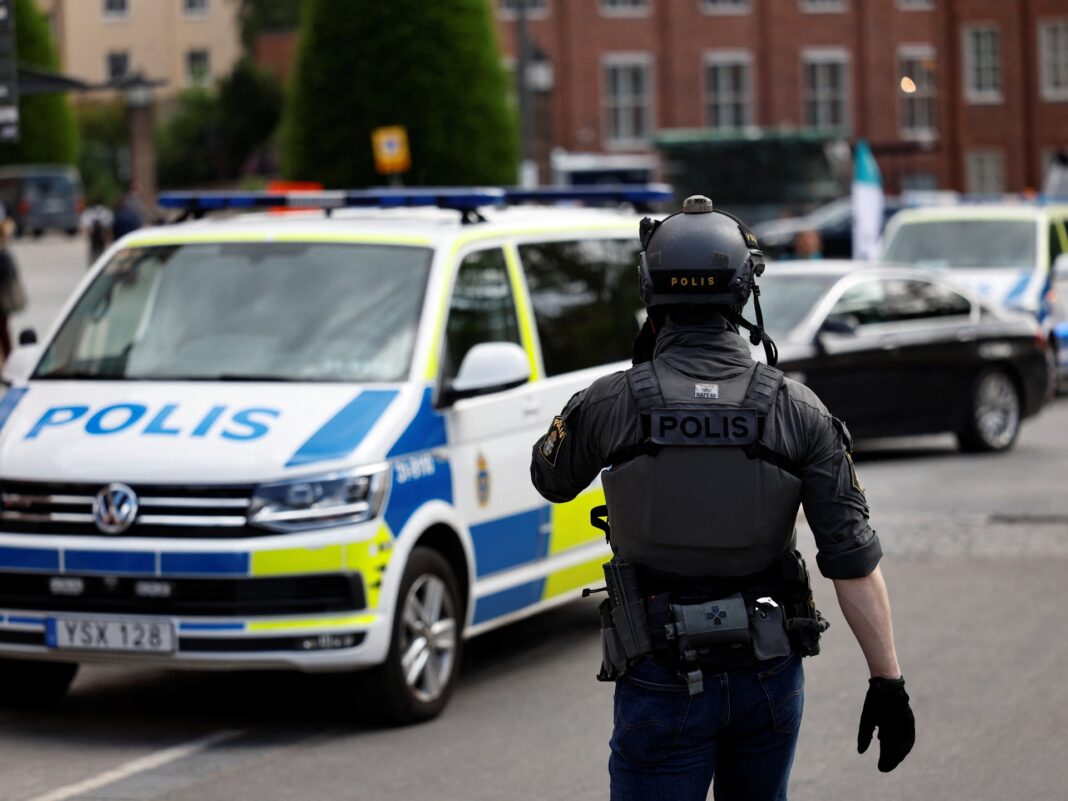The team behind an Al Jazeera 360 documentary has rejected claims by the Swedish prime minister that a film about child protection laws in Europe is “dangerous”.
The three-part investigative documentary Behind Closed Doors, produced by Al Jazeera 360 – a video-on-demand platform that is part of the Al Jazeera Media Network – follows families from various backgrounds and nationalities who have faced the traumatic experience of having their children forcibly removed by social authorities in Norway, Sweden, Germany and Luxembourg.
On November 10, Swedish Prime Minister Ulf Kristersson likened the documentary to the so-called LVU campaign, a misinformation campaign that gained traction on social media in 2022 that suggested Swedish authorities were kidnapping children from Muslim families.
But Awad Joumaa, head of originals at Al Jazeera 360, said the attacks on the film were “misleading”.
“Al Jazeera 360 emphasises that the series was developed to explore a complex social issue affecting families across northern Europe,” a statement from Al Jazeera 360 said. “Behind Closed Doors presents diverse families from various backgrounds and nationalities who have faced the traumatic experience of having their children forcibly removed by social authorities. In some cases, children were not only separated from their parents but were also split up and placed in different cities, leaving parents unaware of their children’s whereabouts and with no access to them.”
SVT, Sweden’s national broadcaster, also criticised the documentary, saying that it omitted some details on the cases included in court documents.
However, Joumaa said that was misleading, adding that both court documents and the reasons for the child removals were prominently displayed on the screen and that rulings or decisions that contradicted the families’ claims were shown, ensuring that the official perspective was presented alongside the families’ narratives.
“This approach provided viewers with both perspectives, allowing them to form their own opinions,” he said.
‘Security consequences’
Swedish authorities declined to participate in the documentary, unlike those in Germany, which provided an official for comment.
However, the Swedish reaction to the film has been vocal, with PM Kristersson writing on social media that Behind Closed Doors could be “dangerous for Sweden”. He also told the Swedish newspaper Expressen that it could lead to a heightened threat level against the country.
Sofia Bard, who heads the Swedish Institute, which analyses Sweden’s image in the rest of the world, told SVT that the documentary could contribute to a negative image of Sweden and affect the country’s influence internationally.
She also stated that it could have “security consequences”, referencing the LVU campaign and the Quran burnings that have occurred in the Nordic nation and led to anti-Sweden protests in several Muslim-majority countries last year.
At the time, the Swedish Security Service (SAPO) raised its assessment of the level of threat against Sweden to four on a scale of one to five amid mounting international tension over the burning of copies of the Quran at demonstrations.
Joumaa, however, says the Swedish reaction overlooks the film’s depth and the broader issues it seeks to examine.
“The assertion that Behind Closed Doors poses a security threat to Sweden seems to be based solely on the opinion of one security analyst, who appears to have made a rapid assessment of the series, which actually spans three parts,” Joumaa said. “This claim overlooks the film’s depth and the broader issues it seeks to explore, focusing instead on a narrow perspective without fully engaging with the content.”
He added that the production team made several attempts to involve Swedish authorities, including the Ministry of Foreign Affairs, offering them a chance to present their viewpoint.
While the ministry redirected the request to the responsible agency, the Ministry of Social Affairs rejected an interview request and chose not to cooperate.
Joumaa added that the documentary did not attempt to influence its audience, and instead presented the evidence and expert opinions, leaving the judgement up to the viewer.
“We are simply putting the arguments and the perspective and the issue on the table, and that whole point of free debate has been missed,” he said.
To view part one of Behind Closed Doors (in Arabic), click here.







